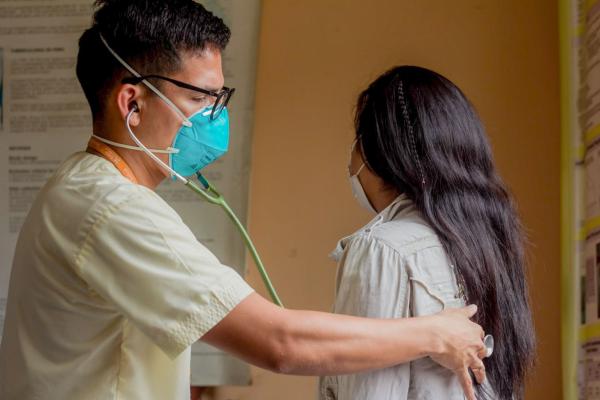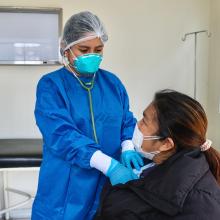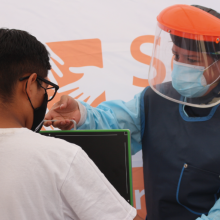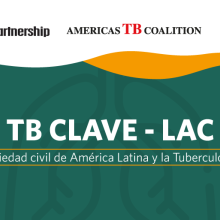Based on the Political Declaration approved six months ago at the United Nations High Level Meeting on Tuberculosis (UNHLM), at Socios En Salud (SES) we took into account this official document and the political commitments of the Heads of State to carry out technical assistance, with the participation of civil society from 12 Latin American and Caribbean countries.
Thanks to our RINDE-TB project, a prioritization exercise was conducted, focused on the theme of accountability (multisectoral responsibility), in which we assisted participants during data collection in a virtual session and applied a survey via online. The UNHLM Policy Statement 2023 and the abbreviated version published by Stop TB Partnership were considered as references.
During a series of virtual sessions (one per country), we provided an overview of the tuberculosis (TB) situation in each territory, explained the importance of multisectoral accountability and developed, one by one, the 12 themes drawn from the UNHLM policy commitments. For this, we had the multisectoral accountability framework for tuberculosis (TB), where different government sectors are expected to articulate actions and evaluate progress in the fight against TB.
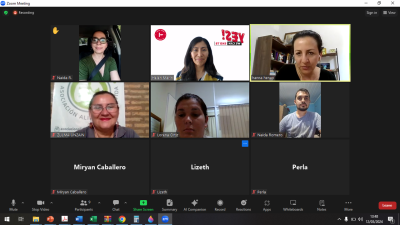
Una de las sesiones virtuales que RINDE-TB desarrolló para fortalecer el papel de la sociedad civil en la lucha contra la tuberculosis en América Latina y el Caribe.
We also addressed in a general way the issues described in the Political Declaration, such as the integral participation of the private sector in the response to TB; resource mobilization; the regulatory framework; the national information system; primary health care; universal access to technology; among others.
This activity will provide technical guidance for the development of a regional summit to promote civil participation in the region in the follow-up of the UNHLM commitments. On April 4, we will share the results of the technical assistance with the TB social observatories and the people who participated in the survey.
How to implement multi-sectoral accountability?
The multisectoral accountability framework is a methodology proposed and published by the World Health Organization (WHO) in 2019, with the purpose of accelerating progress towards meeting the targets and milestones of the Sustainable Development Goals and the End TB (endTB) strategy.
More recently, in September 2023, an Operational Guide was published to support its adaptation and implementation to each country context. It presents practical advice, concrete examples and best practices, taking into account the involvement of key stakeholders involved in planning, implementation, monitoring, evaluation and review of the TB response.
The Latin American and Caribbean countries targeted for RINDE-TB technical assistance were: Bolivia, Colombia, Peru, Mexico, El Salvador, Guatemala, Dominican Republic, Honduras, Panama, Paraguay, Chile and Argentina.
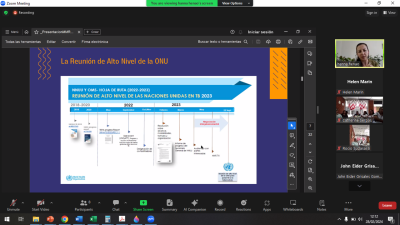
Los participantes de El Salvador, así como los del resto de 11 países que participaron en la asistencia técnica, fueron guiados durante un ejercicio de priorización, enfocado en la temática de rendición de cuentas.
More information about RINDE-TB
RINDE-TB is a Partners In Health (SES) project that promotes advocacy by civil society actors and communities affected by TB in Latin America and the Caribbean, through its preparation and monitoring of UNHLM commitments.
The initiative is supported by USAID, the Global Fund to Fight AIDS/HIV, Tuberculosis and Malaria, and the Challenge Facility for Civil Society Round 11 of the Stop TB Partnership/UNOPS, which is funding SES for the fourth consecutive time in its effort to transform the TB response with a human rights, gender equity, people-centered and accountable approach.
